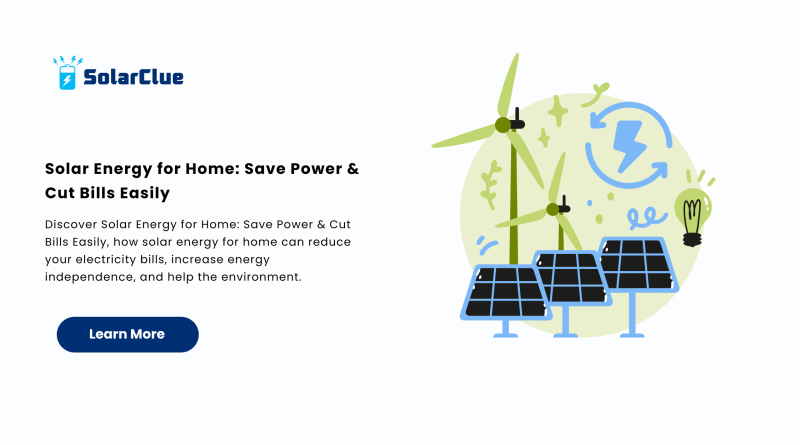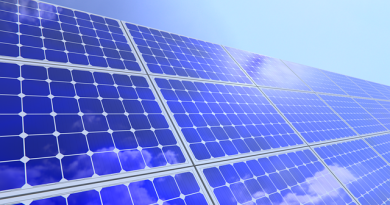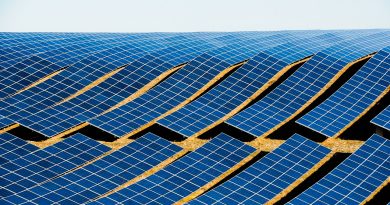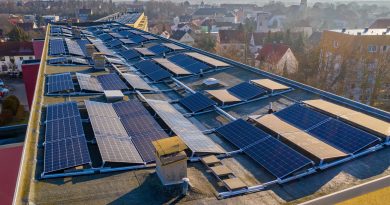Solar Energy for Home: Save Power & Cut Bills Easily
As electricity prices rise and environmental concerns grow, more homeowners are exploring solar energy for home as a smart and sustainable solution. Whether you’re looking to cut down your power bills, reduce your carbon footprint, or gain energy independence, switching to solar power can be a game-changer. With modern advancements and government support, installing a solar power system at home has become more affordable and efficient than ever. In this blog, we’ll walk you through everything you need to know—from benefits and installation to cost savings and common myths—so you can make an informed decision and step into a brighter, cleaner future.
Table of Contents
- 1 What is Solar Energy and Why It Matters
- 2 Benefits of Solar Energy for Homeowners
- 3 Types of Solar Power Systems for Home
- 4 How Solar Panels Work at Home
- 5 Installation Process of a Solar Power System
- 6 Cost of Solar Energy Systems in India
- 7 Government Subsidies and Incentives
- 8 Maintenance and Lifespan of Solar Panels
- 9 Common Myths About Solar Energy
- 10 Choosing the Right Solar Power System for Your Home
- 11 Best Locations in India for Home Solar Energy
- 12 Long-Term Savings and ROI
- 13 Environmental Impact of Home Solar Systems
- 14 Top Questions to Ask Before Installing Solar
- 15 FAQs About Solar Energy for Home
What is Solar Energy and Why It Matters
Solar energy is a renewable source of power harnessed from the sun using photovoltaic (PV) panels. As the demand for sustainable energy grows, more homeowners are turning to solar energy for home to lower their dependency on the grid, reduce monthly expenses, and contribute to environmental protection.
Benefits of Solar Energy for Homeowners
1. Significant Cost Savings
One of the biggest advantages of solar power is the long-term financial benefit. By generating your own electricity, you can slash or eliminate your electricity bills.
2. Increase in Property Value
Homes equipped with a solar power system often sell at higher prices. Buyers are willing to pay more for energy-efficient homes that reduce future utility costs.
3. Eco-Friendly Energy Solution
Installing solar energy for home reduces your carbon footprint. Unlike fossil fuels, solar doesn’t produce harmful emissions.
4. Energy Independence
With rising utility prices, becoming energy self-sufficient through a solar power system provides peace of mind.
Types of Solar Power Systems for Home
1. Grid-Tied Systems
Connected to your local utility grid. Any excess electricity you produce is sent back to the grid, earning you credits.
2. Off-Grid Systems
Completely independent from the utility grid, ideal for remote areas.
3. Hybrid Systems
Combines both grid-tied and battery backup solutions for uninterrupted power.
How Solar Panels Work at Home
When sunlight hits your solar panels, photovoltaic cells convert it into direct current (DC). An inverter then changes this to alternating current (AC) for use in your home.
Installation Process of a Solar Power System
- Site Assessment – Check rooftop orientation and space.
- Design and Permits – System is customized and approvals secured.
- Installation – Mounting, wiring, and inverter setup.
- Inspection and Connection – Final checks before activation.
Cost of Solar Energy Systems in India
Prices vary depending on the size, brand, and technology. On average, a solar energy for home setup can cost between ₹60,000 to ₹1,50,000 per kW installed. Subsidies may reduce upfront costs significantly.
Government Subsidies and Incentives
In India, the government offers up to 40% subsidy for residential rooftop solar power installations under the PM Surya Ghar Yojana. This makes solar more affordable and accessible.
Maintenance and Lifespan of Solar Panels
Solar panels require minimal maintenance – periodic cleaning and occasional inspections. Most panels come with a 25-year warranty, ensuring long-term use.
Common Myths About Solar Energy
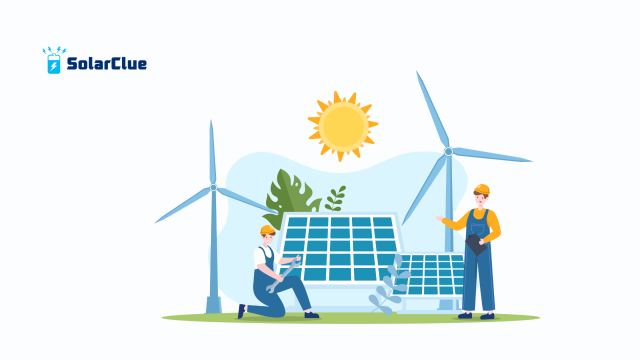
- Solar panels don’t work on cloudy days: False – they still generate energy, though less.
- Solar is too expensive: Outdated – prices have dropped significantly.
- Maintenance is a hassle: Not true – systems are low maintenance.
Choosing the Right Solar Power System for Your Home
- Assess your energy usage
- Analyze roof space and sunlight exposure
- Set your budget and explore EMI or lease options
- Consult certified solar installers
Best Locations in India for Home Solar Energy
Places like Rajasthan, Gujarat, Telangana, and Karnataka receive high sunlight and are ideal for solar energy for home use.
Long-Term Savings and ROI
While the initial investment might seem steep, homeowners usually recover costs within 5–7 years, with decades of savings afterward.
Environmental Impact of Home Solar Systems
Using solar power significantly reduces greenhouse gases and reliance on fossil fuels. Every kilowatt installed helps fight climate change.
Top Questions to Ask Before Installing Solar
- What size system do I need?
- What are the total costs and expected savings?
- Are there any local subsidies?
- Who handles permits and inspections?
FAQs About Solar Energy for Home
Q1. Can I power my entire home with solar?
Yes, depending on your energy needs and panel capacity.
Q2. Do solar panels work during power cuts?
Only if you have an off-grid or hybrid system with battery storage.
Q3. How long does installation take?
Usually between 3 to 7 days including inspection and setup.
Q4. What is net metering? Net metering allows you to send excess electricity back to the grid and earn credits.
Q5. Do solar panels need to be cleaned often?
Basic cleaning every few months is sufficient for optimal performance.
Ready to cut your electricity bills and embrace a cleaner future? Learn more and explore your options today by visiting our website – solarclue.com or check our insights at blog.solarclue.com.

